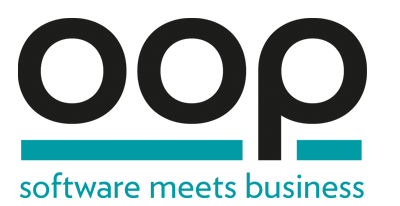Please note:
On this page you will only see the English-language presentations of the conference. You can find all conference sessions, including the German speaking ones, here.
The times given in the conference program of OOP 2024 correspond to Central European Time (CET).
By clicking on "VORTRAG MERKEN" within the lecture descriptions you can arrange your own schedule. You can view your schedule at any time using the icon in the upper right corner.
Thema: Sustainability
- Montag
29.01. - Dienstag
30.01. - Mittwoch
31.01. - Donnerstag
01.02.
As systems become complex, teams can be burdened with technical debt and architectural challenges, slowing development, and ultimately not being as agile and nimble as desired. If not enough attention is paid to technical debt, design problems will creep in until it becomes muddy, making it hard to deliver features quickly and reliably. This workshop discusses ways to sustain development by understating and managing technical debt. We will present the technical debt metaphor including the…
In this session we will walk through various techniques to significantly reduce the resource consumption of regular Spring Boot applications, including using Spring AOT for regular Spring apps, compiling Spring Boot apps to native images (using GraalVM), and using CRaC for instant startup (for scale-to-zero scenarios). We will compare the different approaches, discuss pros and cons for each technology, and share concrete numbers from real-world applications to give the audience an idea of what…
User-centred design is one of the default modes of teams working with software, but the consequences are often unsustainable in a densely networked world as we privilege users over all other stakeholders and systems. How might teams approach building products, services and organisations from a more sustainable standpoint than 'user-centricity'? This talk looks at how the techniques of game design, community development, platform operations and security practices can support a practice focused on…
"Which programming language is the fastest" usually is everyone's first thought when green software is mentioned! It's a common deduction that the fastest code is, therefore, the most efficient, which then, of course, can save us from this climate disaster. However, code efficiency is not even half of the story! In this talk, Sarah will review the three approaches that make software green. She will also introduce efficiency-achieving practices that can take us closer to fighting this pesky…
Expanding horizons has many facets. It means taking advantage of new opportunities that arise from technical progress, such as Large Language Models, or societal challenges like Sustainability. Expanding horizons also means taking responsibility. AI and data analytics have a direct impact on our future life, good and bad. Expanding horizons also means reflection on existing practice. We have perhaps forgotten the benefits of structured monoliths, or have sometimes overdone it with agility, which…
This talk is about my journey as a Scrum Master towards creating sustainable DevOps teams. I will share my learnings and inspire the audience to raise awareness on sustainability in their own teams and organizations.
We will have a look at IT (and our own work) through the generational lens, to discover how long-term thinking can reshape the way we look at our daily work and help us find strategies for making IT sustainable.
Target Audience: Architects, Developers, IT Managers, Agile…
At Tchibo we wanted to reduce our server and energy consumption with our product development teams. But why would we care? We all like fast snappy development and test systems. And our shop needs to survive Black Friday’s shopping traffic. Annual Google Cloud consumption forecasts do not trigger us to consume less. But when we started to show teams their related carbon dioxide footprint, we created a feedback loop that will help us to become better CO2-developers.
As developers, we have an…

